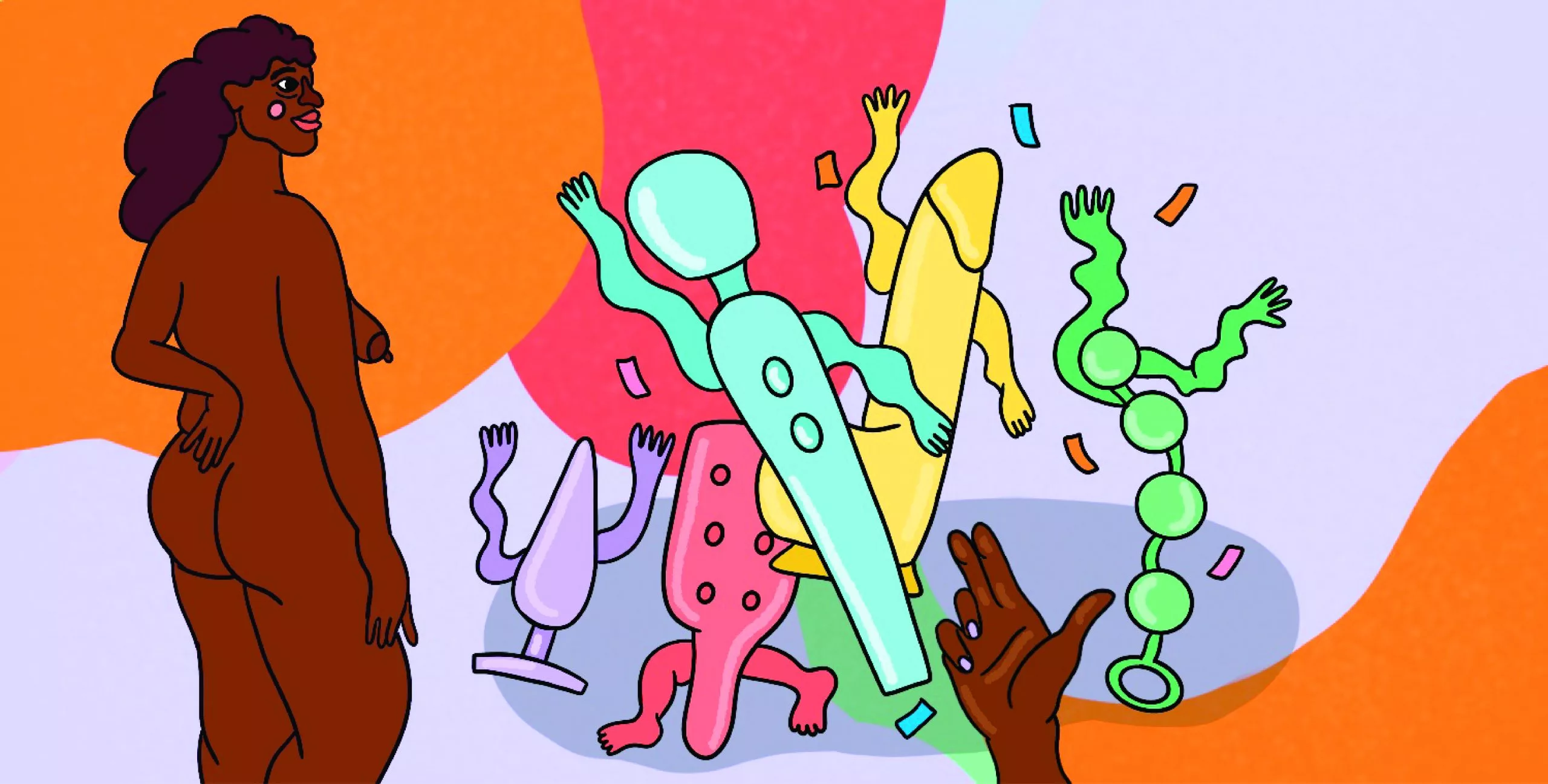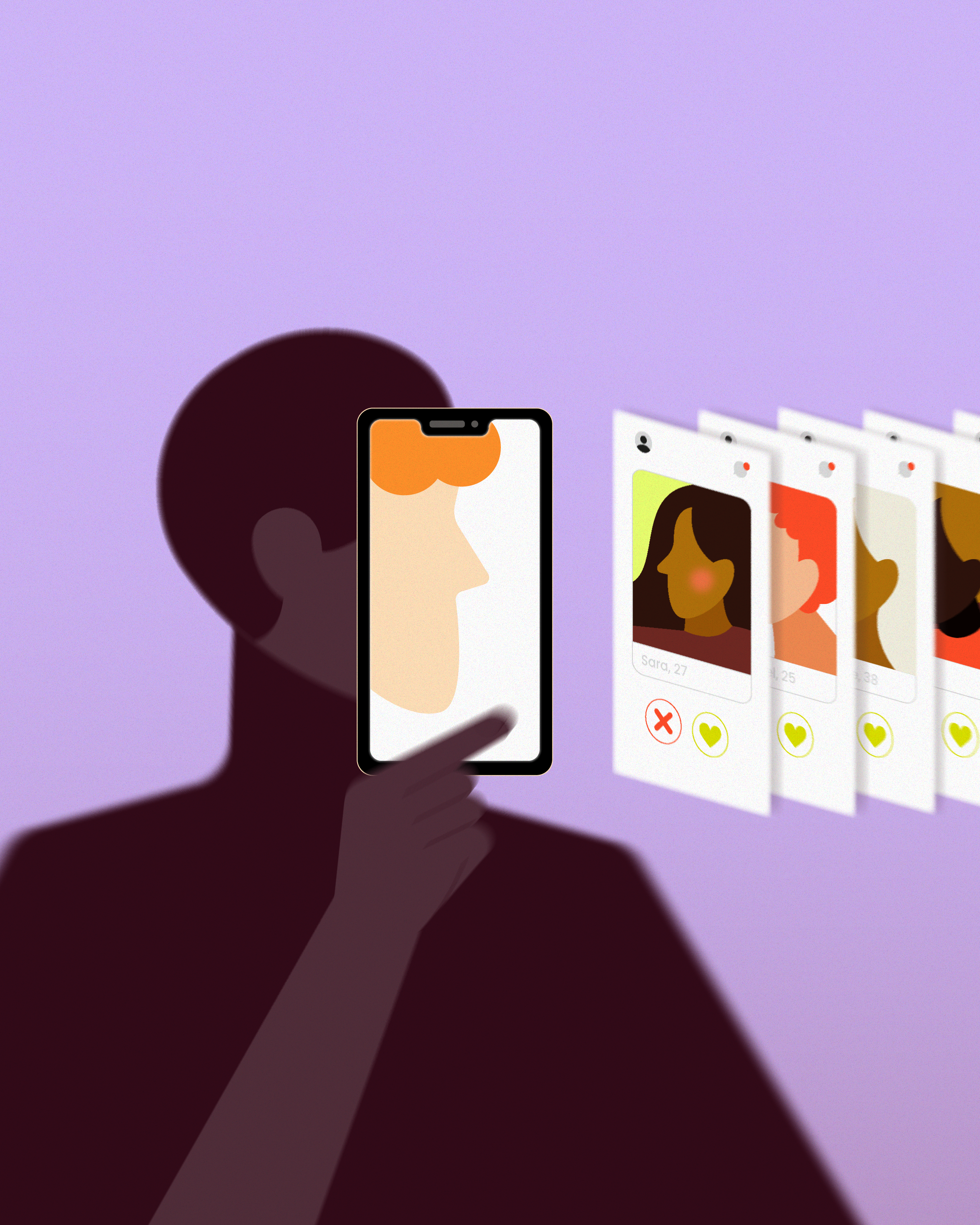Your cart is currently empty!

“I Don’t Like That My Partner Masturbates”: Solo Sex in Relationships
“I don’t like that my boyfriend masturbates; I find it hurtful,” says Audrey*, a 20-something who identifies as cisgender and bisexual.
“We’ve been together for almost a year,” she continues. “One day, we were talking about sex in general and he said that he sometimes masturbated while watching porn. Not every day, but definitely every week. I got super uncomfortable, had a hard time understanding my emotions, finally admitting that I felt ‘betrayed.’ Why does he ‘need’ to do that, you know ?
“My boyfriend was a good listener, and he told me that he loved and desired me, but that he also liked to masturbate. That, for him, it had nothing to do with how he felt about me. I’m having trouble understanding that.”
The situation described by Audrey is far from unique. Indeed, many people feel uncomfortable to varying degrees with the idea of their partner having solo sex.
We discussed it with Sara Mathieu-C., board member of Club Sexu, sex researcher, and designer of Club Solo, a web application that allows for the anonymous mapping of masturbation sessions on an interactive map.
What is solo sex?
“Solo sex refers to a taking a moment with yourself, during which you engage in the pleasurable self-stimulation of your body’s erogenous zones and/or engage in erotic imagination, with a sexual intention, with or without orgasm,” explains Sara Mathieu-C.
“Solo sex can be done alone in private, with or without porn, and with or without a toy. While masturbation can look different from one person to another, most people stimulate their genitals.”
To understand how a partner’s solo sexuality can be difficult to accept, Sara first suggests putting a magnifying glass on the roles of auto-eroticism.
“Masturbation meets a constellation of needs that go well beyond that of pleasure,” says the guest who spoke to us at length about the functions of jerking off in the second episode of our podcast, À quoi tu jouis?. “Masturbation can be used to relax, release tension, promote sleep, explore sensations, feed your erotic imagination, and get to know your body better.”
Are you more of the complementary type or of the compensatory type?
Beyond the many functions of solo sex, Sara invites us to take a look at the place we give masturbation in our lives in general.
“Some people see masturbation as complementary to their partnered sex lives: as an erotic activity in its own right, within the larger repertoire of sexual activities,” argues the researcher. “On the other hand, other people see this practice as compensatory: to fill in for a lack of partnered sex or to counterbalance sexual dissatisfaction.”
Sara illustrates her point by explaining that, in the case of people who believe that masturbation is compensatory, we inevitably observe a shift in their relationship to solo pleasure when they have access to a partner: masturbation often gets demoted or completely cast aside.
On the other hand, if we are more of the complementary type, masturbation continues to be part of our range of sexual practices, since it’s not there to fill an absence or compensate for dissatisfaction.
“We even observe an increase in the frequency of masturbation in some people when they are in relationships,” says the expert. “It’s as though their sexual selves becomes activated, whereby masturbation feeds on an increase in excitement from the sex they are having with their partners, and vice versa.”
On the other hand, in certain cases, masturbation can constitute a strategy to compensate for a discrepancy in sexual desire between partners.
On the other hand, in certain cases, masturbation can constitute a strategy to compensate for a discrepancy in sexual desire between partners.
You masturbate? So do I!
“Early in our relationship, my girlfriend and I talked about our masturbation habits, our toys, our fantasies, and our favourite porn search terms” explains Sofia, a lesbian, cisgender woman in her thirties.
“We don’t live together, and when we’re each at our respective homes, I like knowing that my girlfriend touches herself, that she takes these kinds of moments for herself,” she adds. “I do the same. I find it important that our solo erotic lives go on, even when in a relationship. Oh, and also… I find it exciting to imagine her making herself come in her bed!”
For Sara Mathieu-C., talking openly about one’s auto-erotic habits at the start of a relationship is an avenue worth considering. Of course, it’s not an obligation: you can keep a secret garden and it’s also okay if masturbation isn’t your thing. The idea is to open a dialogue devoid of judgement.
“If, at the beginning of a relationship, our partner says something like ‘Eww, porn!’ or looks down on masturbation, there’s a good chance that we won’t often allow ourselves to indulge in solitary pleasure, or that we’ll feel ashamed,” says Sara.
Furthermore, studies examining sexual satisfaction in women show that those who have a positive attitude towards masturbation when in a relationship experience more pleasure during partnered sex.
“More open attitudes towards sexuality and its various expressions often guarantee greater satisfaction,” argues the sex researcher, who values communication.
“Openly discussing masturbation, pornography consumption, and sex toy use is also associated with greater satisfaction.”
Partnered and solo sex: not a competition
As I listened to Sara Mathieu-C. talk about masturbation, one question still bothered me: what if your partner consumes lots of porn and masturbates a lot, and they show you little desire or no desire at all?
“In a case like that one, masturbation is often interpreted as the problem,” explains the researcher. “When it’s been a long time since we’ve had satisfying sex or any sex at all, it can be very triggering and even taboo to come across our partner’s porn history. We then perceive masturbation as a threat, almost through a lens of competition or jealousy.”
In this situation, Sara again advocates communication. “Why not integrate masturbation to rekindle the flame of the relationship and start discussions about desire?” she suggests.
To conclude, the sex researcher states that it’s never too late to open a dialogue about auto-erotic practices with one’s partner(s). “You can use a scene in a movie or in a TV series as a starting point to try to talk about your own practices and learn more about those of your partner. Because talking, especially when things are going well in your relationship, is always a good idea.”
*Fictitious name.

If reading this article has piqued your curiosity, there’s an episode of our podcast, À quoi tu jouis?, devoted entirely to masturbation (available in French only).





